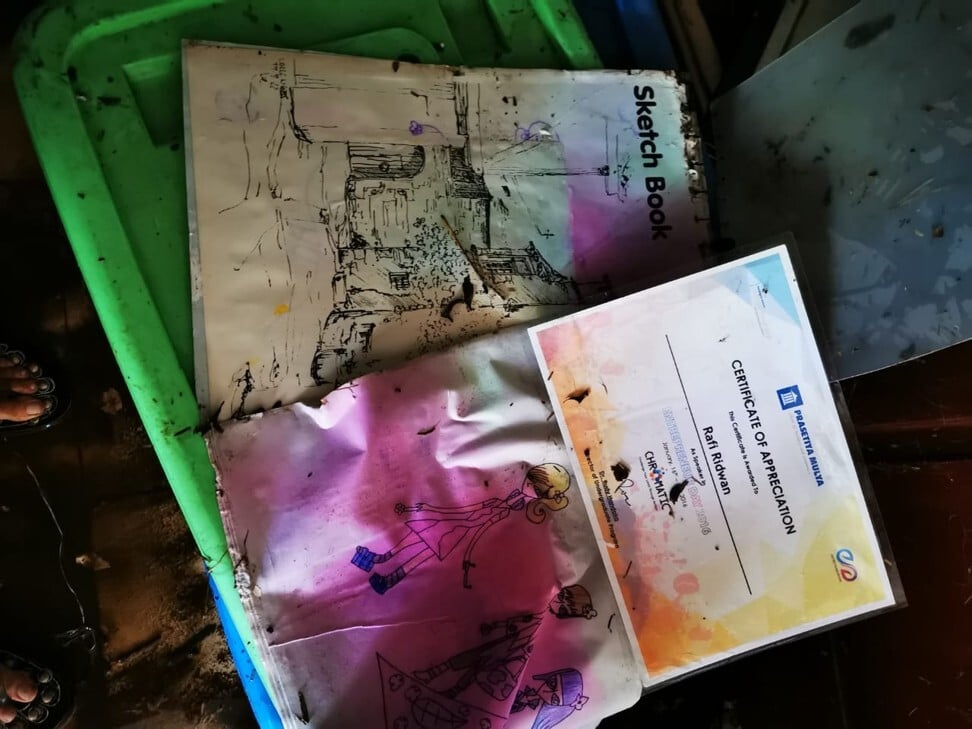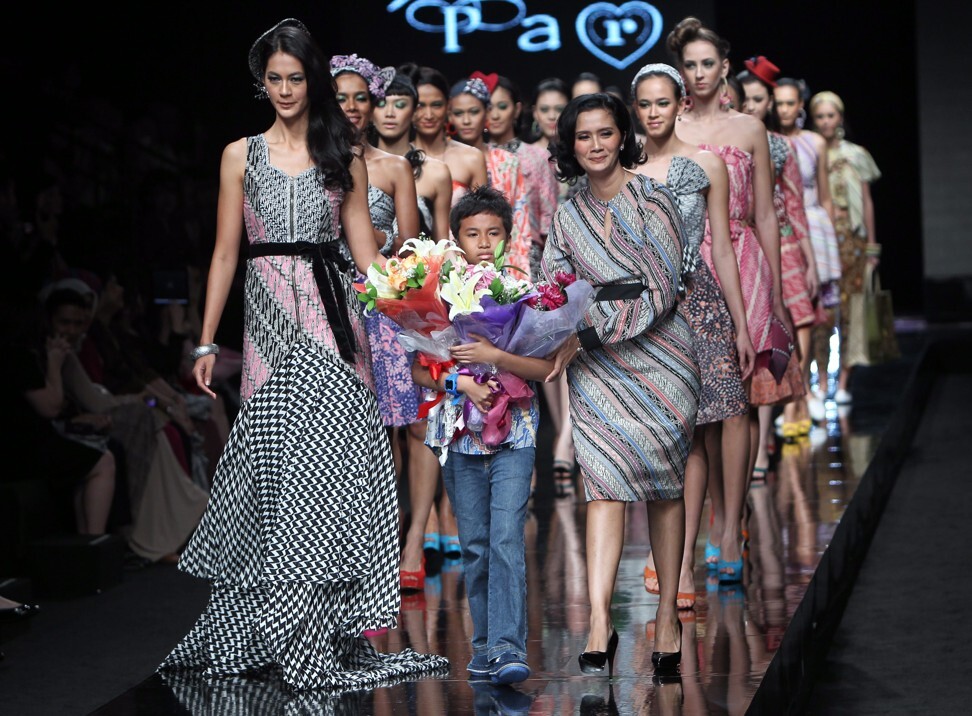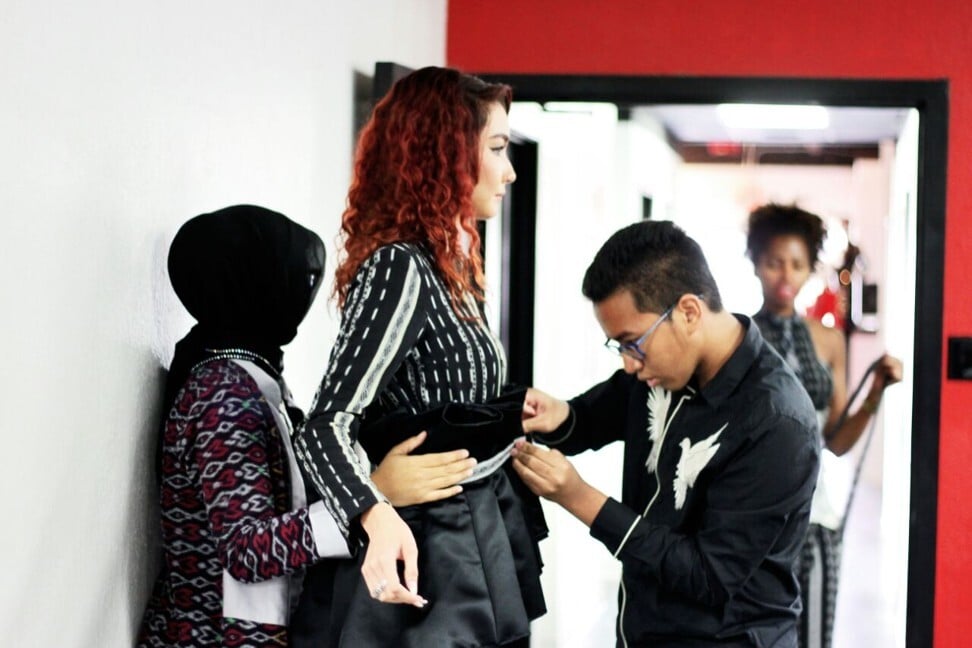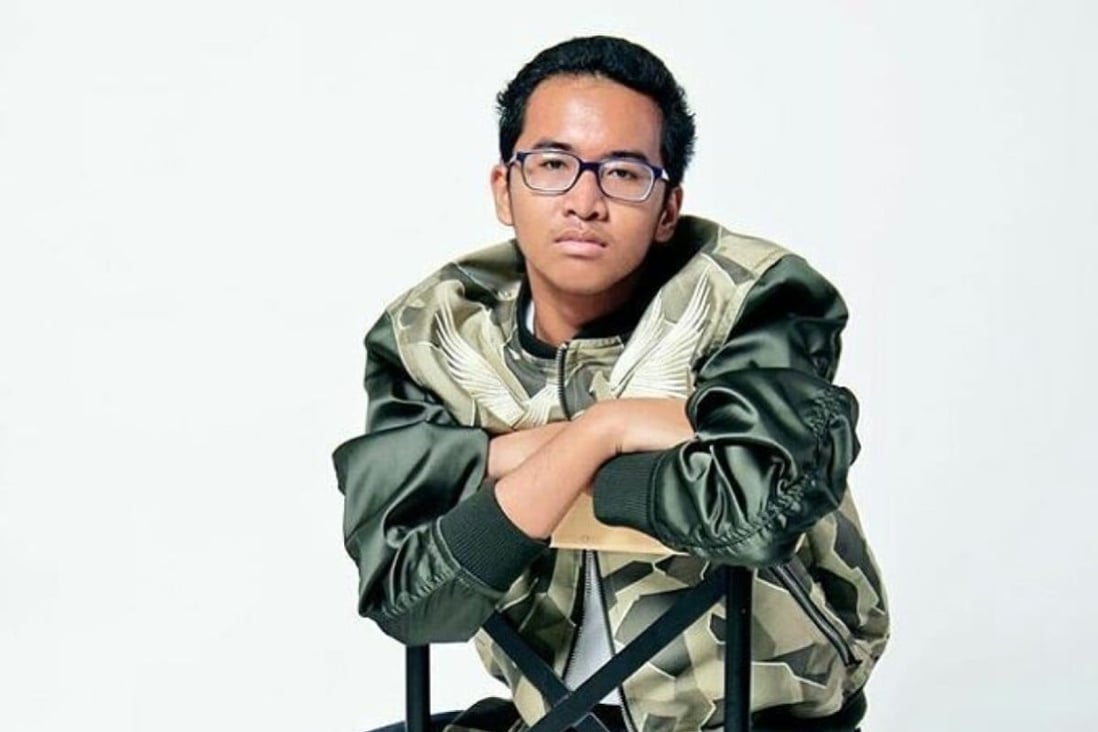This article was published in the South China Morning Post, August 3, 2020.
Also appeared in the South China Morning Post print edition as:
Young disabled designer’s plan to help children dealt a severe blow
He was all set to launch his latest project earlier this year – a fashion and culinary workshop for disabled children – but the now 18-year-old’s plans were scuppered when floods struck several parts of Indonesia in January, just a few days after he had returned from a fashion show he had held in the US state of Texas.
His home in Bekasi, a city on the eastern border of Jakarta, was submerged in waist-high water. Rafi and his family spent almost a week cleaning up their home, but the building where the workshop was to be held, close to his house, had almost sunk below ground.
“When we got in [our house] after the flood receded, everything was in disarray,” says Shinta Handayani, Rafi’s mother. “Metres of traditional fabrics we bought from all across Indonesia were destroyed. A computer was lying on the kitchen floor. The worst part was Rafi’s award certificates and media clippings were drowned in mud. It broke my heart to see my son trying to hold back his tears.”
 |
| Rafi’s certificates, sketchbooks, and other memorabilia, destroyed by the floods in Indonesia. |
For Rafi, those items had marked his tough journey through thick and thin.
Rafi was born deaf and mute. One day, he asked his mother: “What is sound?” She explained to him that sound is just like colours: there are many variations, some bold, some soft. Rafi then started to apply intense, contrasting colours to his drawings.
“Then one day, he watched The Little Mermaid and asked, why Ariel doesn’t wear proper clothes?” Shinta says. “So, I told him to make some for her. He created sketches of dresses inspired by Ariel and that’s when his journey into fashion began.”
 |
| Rafi at Jakarta Fashion Week 2012. |
Many sketches later, Shinta and her husband, Ridwan, decided to show Rafi the professional side of the fashion industry. They took him to fashion shows and met some famous Indonesian designers who shared their insights on the fashion world. His sketches drew Barli’s attention, who then asked him for a collaboration for his next fashion show. Rafi’s sketches became reality for the first time, in the form of beautiful dresses worn by models.
Only a few months after the show, Rafi showed his collection at Jakarta Fashion Week, gaining more attention from Indonesian and international media. In 2013, he was chosen by American TV host Tyra Banks to create a collection for an America’s Next Top Model photo shoot in Bali. “That was the most memorable moment from my journey as a fashion designer,” Rafi says.
 |
| Rafi and his mother Shinta (left) preparing for a fashion in El Paso, Texas. |
It hasn’t all been glitz and glam, though, with Rafi often facing discrimination for his age and disability. “Some people thought his fame and achievement happened not because he’s talented, but only because he’s young and deaf,” Shinta says.
In 2014, for example, one of Rafi’s shows was scheduled to be the finale at one of the most prestigious fashion events in Jakarta. Before the event, however, officials swapped the line-up and gave the spot to a senior designer. They were worried that no one would come to a fashion show from a child designer, according to sources. But despite the schedule change, Rafi’s show still attracted the biggest audience of the event.
Undeterred by discrimination, Rafi has continued to build his career. Besides Jakarta, he has also showed his designs in Kuala Lumpur in Malaysia, Melbourne in Australia, and California and Texas in the US.
Having successfully built a fashion career from a very young age, Rafi wanted to share his knowledge and empower disabled children through his now on-hold workshop.
“We’re concerned about the fact that disabled children will have limited career options once they graduate from school,” Shinta says. “We’re trying to help them to learn new skills that are beneficial for their future.”
The workshop was supposed to be launched on Rafi’s 18th birthday this July, but after the flood, and the Covid-19 pandemic, the plan has been pushed back indefinitely.
“I feel wrecked, stressed out,” Rafi says. “Sometimes I think it’s a sign from God that this is the end of my career. I don’t know how to get the funds to rebuild the workshop. But I keep reminding myself how I worked hard since I was nine to reach my dream as a designer. It would be a waste if I quit.”
Despite the incident, he will continue to inspire more disabled children in Indonesia.
“No matter where we came from, no matter what disability we have, it’s important to work hard and reach our dream,” Rafi says. “So don’t be afraid to dream big.”

